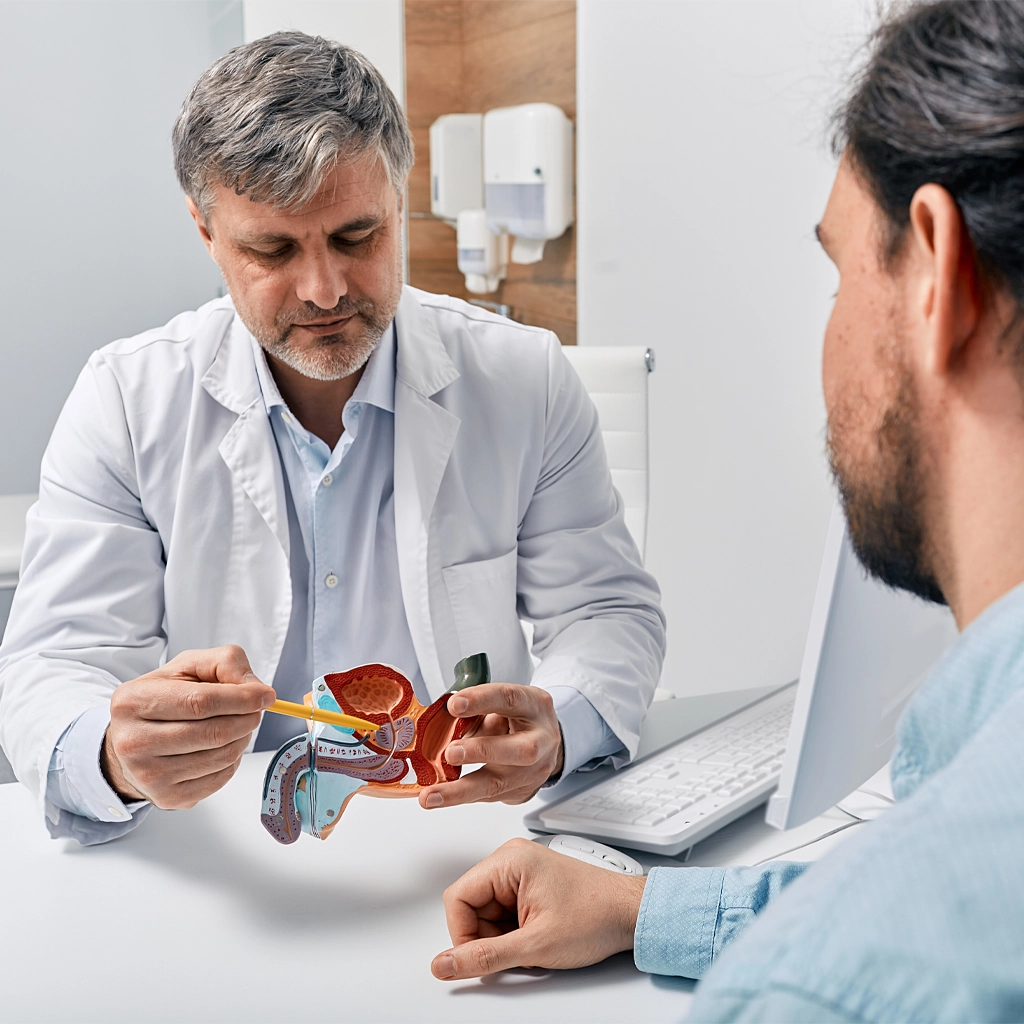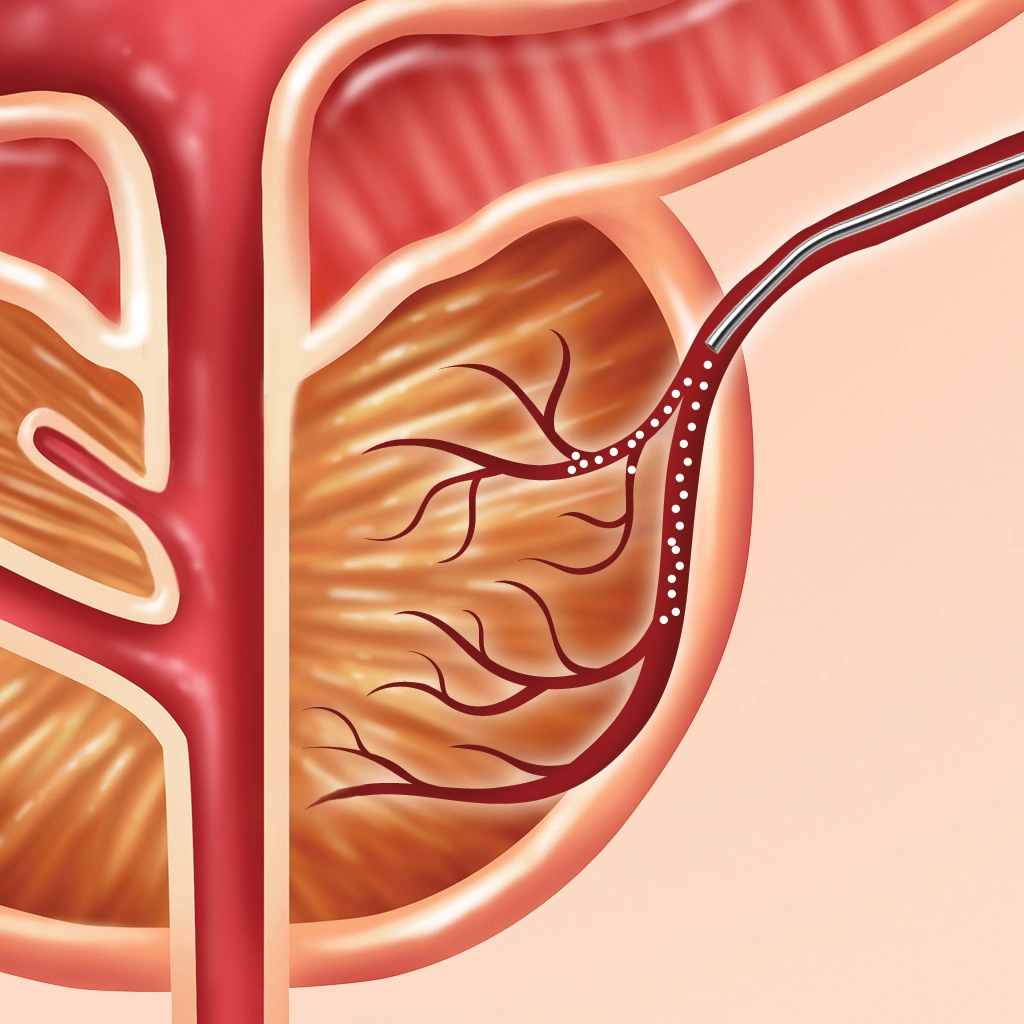Prostate Artery Embolization (PAE)
Houston’s First Center to offer Prostate Artery Embolization.
We have performed more PAE’s than ANY provider in the Houston Metro Area.
For those who suffer from the symptoms of benign prostatic hyperplasia, commonly known as “enlarged prostate,” Alate Health offers a less invasive alternative to surgery. Prostate artery embolization (PAE) is a safe and effective approach performed by Dr. Andrew Doe to alleviate symptoms such as urinary frequency and urgency, weak urine stream, and difficulty starting or stopping urinating.
Take our quiz to see if you qualify for prostate artery embolization »

